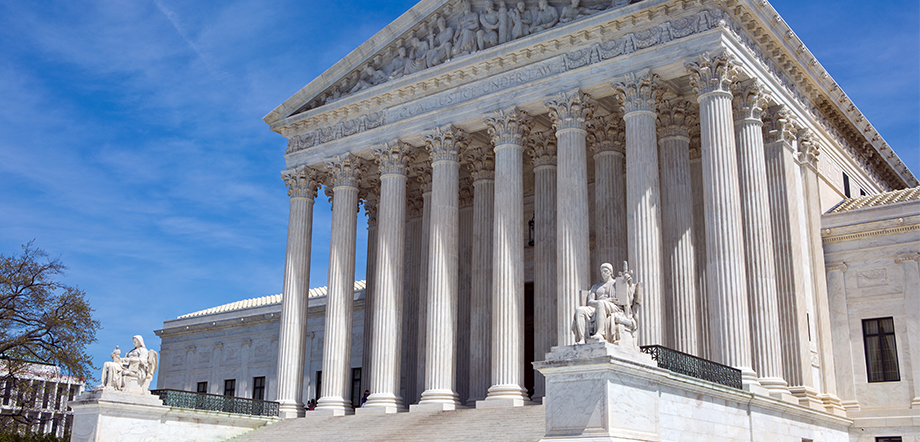Client Alerts
SCOTUS Hits a Home Run in Favor of Property Rights
June 2019

Client Alerts
SCOTUS Hits a Home Run in Favor of Property Rights
June 2019
While the MLB All-Star festivities are upon us in Cleveland, property rights advocates are focused more on the home run the United States Supreme Court just hit in its decision in Knick v. Township of Scott, Pennsylvania, No. 17-647, issued on June 21, 2019. The Supreme Court has ruled that property owners may now file regulatory takings claims directly in federal court for just compensation under the Fifth Amendment when local government decisions – such as zoning decisions – deprive real property of substantial economic value.
The Just Compensation Clause or Takings Clause is the last clause of the Fifth Amendment to the United States Constitution, and states that “nor shall private property be taken for public use, without just compensation.” People are most familiar with the clause when the government physically takes private property – such as cases involving roadway improvements – but it can also be implicated when the government regulates property, through zoning or otherwise, to such an extent that it has “taken” it, similar to a physical taking. This regulatory taking is called inverse condemnation: entitling a property owner to just compensation from the government.
Previously, property owners were required to pursue regulatory takings claims in state court before seeking relief in federal court. The issue is that state courts may be less inclined to subject local governments to financial liability for property rights abuses than federal judges, who arguably are not as bound by local political constraints and pressures. Moreover, the cost and expense of proceeding through lengthy state court proceedings before pursuing federal court proceedings made pursuing such claims economically burdensome and many times infeasible.
In the Knick decision, the Supreme Court – in a rare departure from tradition and precedent – overruled its previous decision in Williamson County Regional Planning Comm’n v. Hamilton Bank of Johnson City, 473 U.S. 172 (1985). Williamson County had been a death knell to many property rights cases, as that decision essentially allowed property owners to pursue a regulatory takings claim only in state court – not federal court.
The Knick case presented a fairly straightforward set of facts, but resulted in a much-needed change in the law. The case was brought by Rose Mary Knick, the owner of a large rural farm outside of Scranton, Pennsylvania, which happened to include a small graveyard where ancestors of Ms. Knick’s neighbors are buried. The local township passed an ordinance requiring all cemeteries to be “open and accessible to the general public during daylight hours” and entitled local government enforcement officers to enter the property at any time to determine the existence of a cemetery.
In response to the ordinance, Knick sued in federal district court arguing that the ordinance violated the Takings Clause of the Fifth Amendment. The federal district court dismissed her claim under Williamson County because she hadn’t first pursued an inverse-condemnation action in state court. The U.S. Court of Appeals for the 3rd Circuit affirmed.
In its reversal, the Supreme Court reiterated that the Takings Clause of the Fifth Amendment states that “private property [shall not] be taken for public use, without just compensation.” The Court held that this means that a government violates the Takings Clause immediately upon taking property without paying for it, even though state law provides a mechanism for property owners to recover just compensation at a later date. Thus, property owners may immediately seek help from federal courts.
The Knick decision opens the door for property owners to protect their rights in the federal courts – a forum that is potentially more advantageous than state court, since federal courts tend to be further removed from the local politics and pressures that face state courts when dealing with claims against local governments. At the very least, property owners now have more options to protect themselves. This is a watershed moment that provides protections to private property rights that have been denied for over 30 years. This home run will help protect property rights in the future as regulations and restrictions continue to become more burdensome and restrictive.
ADDITIONAL INFORMATION
For more information, please contact:
- Anthony R. Vacanti | 216.696.2093 | tony.vacanti@tuckerellis.com
This Client Alert has been prepared by Tucker Ellis LLP for the use of our clients. Although prepared by professionals, it should not be used as a substitute for legal counseling in specific situations. Readers should not act upon the information contained herein without professional guidance.
